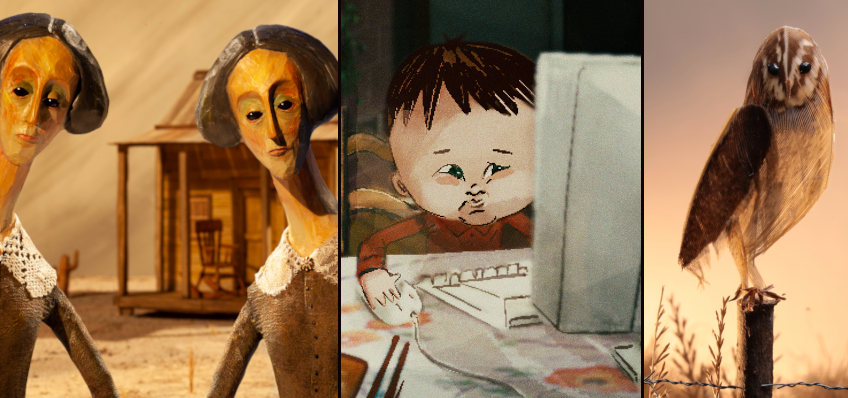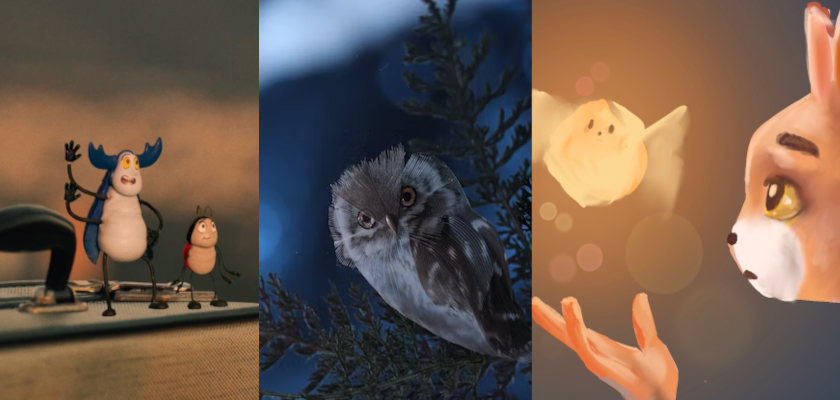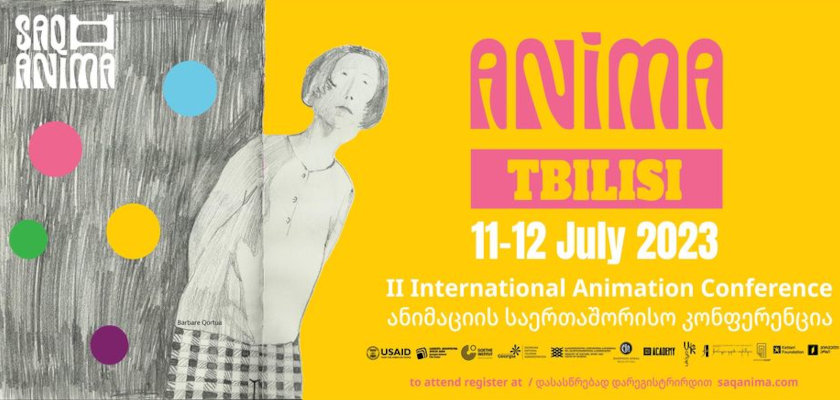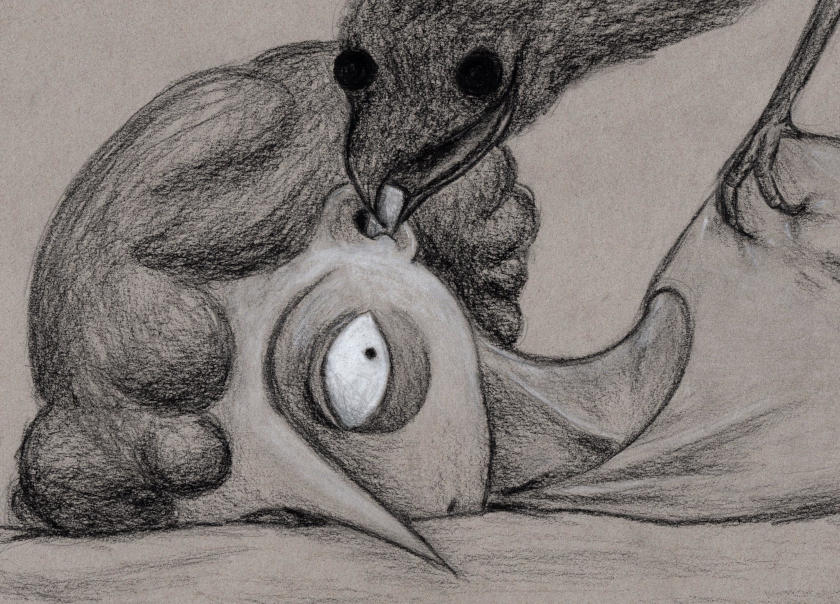StopMoLab Training Programme: Interview with Paulina Zacharek
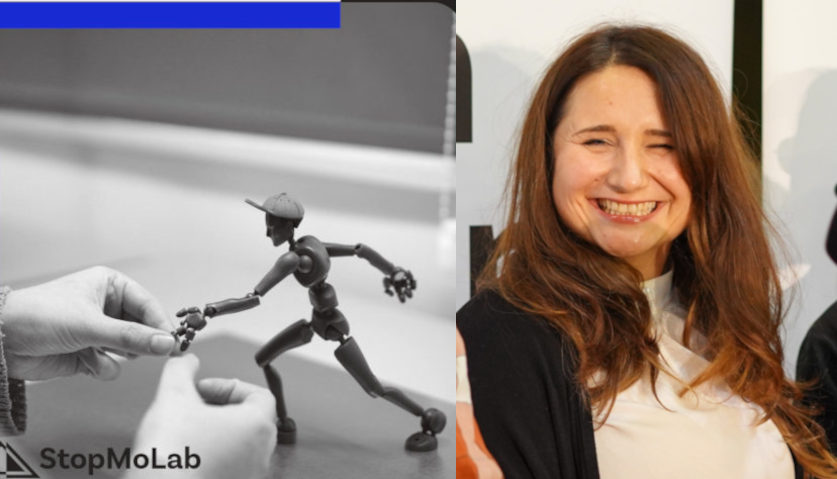
In the independent animation industry, it seems like we're always one step behind what's being done in the mainstream. Not only in terms of production and distribution, but also in education for real life after school. This makes students and young professionals see the way the production of their films is too complicated.
Although there are master's degrees and important updating programs, which are necessary, still a misunderstanding between the creative and business sides of a project, in addition to the rapid changes in the industry, makes many young people and professionals lose the desire to continue with their projects. Even many confess that they do not see themselves getting a position in any studio or animation company.
It seems like a cognitive dissonance that independent animation is an art that wants to escape from the masses but paradoxically needs to reach more people so that funding offers multiply. All art needs a financing process that achieves a balance between the creative, the economic, and in our days, the sustainability of how to do it.
Fortunately, all these points have been assessed by Paulina Zacharek and her team to create StopMoLAb. We talked to Paulina, who is the head and programmer of this new training program, unique of its kind at an international level.
ZF: How do you see the scene of stop-motion in the world, but specifically in Europe?
PZ: I see it as a vivid, dynamic, changing picture. We have a few big animation studios producing features, shorts, and TV series, but then we have a lot of small studios, puppet-making workshops and a wide range of free-lance specialists traveling from set to set. For sure, stop-motion animation is a growing industry. Since the beginning of 2022, when I started programming StopMoLab, I have been in contact with a lot of stop-motion professionals. It is very hard for them to find a 2-hour gap to give a lecture or meet with our students. I am talking about producers, line producers, studio owners, animators, art directors, and puppet makers. Simply, everybody is fully packed with work. Currently, we have in production (at different stages) at least 4 European feature films and more than a dozen shorts. We can see that big player like Netflix is also interested in developing stop-motion projects. Creators are to keep on reaching out for that technique because even though it is the oldest animation technique it has a huge artistic potential in the meeting between matter and the idea (objects, material that physically exists has to change into something else and express the creator's will). If you also think about the market for commercials and how many of them are made in stop-motion, it is clear that we have a good time for stop-motion animation. Of course, it doesn’t mean that times are easy.
ZF: What lacks or issues did you notice in the stop-motion content creation process that made you take the step of starting StopMoLab?
PZ: I don't know if this issue only applies to the stop-motion environment. I have a feeling that this is some universal trend. The world is changing rapidly in front of our eyes and, more importantly, it's also requiring quite rapid change from us. We have to learn how to function in such a changing world where there are many opportunities and many ambushes. And back to the stop-motion industry. Currently, you can function in it in many ways, and the development of new technologies and social media creates even more of them. On the other hand, it is difficult for film and art schools to change their programs fast enough to keep up with the rapidly evolving reality. And that reality requires filmmakers, especially in the stop-motion industry, to be able to efficiently self-promote, have the business tools to consciously build their careers, and have a great knowledge of the industry to be able to achieve their goals within it. We want to provide people who are entering the animation market and have specific skills and abilities (such as puppet making, animating, production management, script writing, etc.) with the right tools so that they can consciously build their careers and know how to start building them. This will also help producers who are constantly looking for talented creatives to work on the set.
ZF: Where did the idea of StopMoLab come from?
PZ: From the ANIMARKT Stop Motion Forum. This is an event dedicated to the stop-motion animation industry that we have been organizing for seven years now. I have the pleasure of co-producing this event and programming the masters & co-programming business sections of it. It was there that the observation came up that people who want to work in the industry often don't know its conditions and realities, and more than that they have no idea how to start a career in the industry. We thought that there is a need for a place where people who already have some skills should learn about the financing of the industry, how producers find workers on set and if, for example, the work of an animator on a full-length film looks the same as in a series or short film.
ZF: For whom is it addressed?
PZ: For all those who want to develop an international career in stop-motion, in five professions: art director, animator, puppet maker, scriptwriter, and production manager. Our students already have some experience in the industry and are familiar with stop-motion, but are of course taking their first steps in the industry.
ZF: How does StopMoLab work?
PZ It is an 8-month training program, which is divided into three sections: “Business”, where participants learn about various business and marketing tools, as well as gain knowledge about the functioning of the contemporary animation market to be able to independently create their business model and path of development in the industry. The second is “Skills”, which is used to develop film capabilities such as building puppets, animating, etc. The third is the “Go green” section, where we look for environmentally sustainable solutions for the animation industry. Something very much needed and expected in the industry. All three sections are filled with workshops, lectures, and meetings. Additionally, students also participate in a mentoring system led by business psychologists. In this year's edition, we have 25 students from all over the world (we had about 70 applications). Part of the training is conducted online, but we meet twice in Łódź (Poland) in July and November to get to know each other better and train on the spot. The online program takes place on a platform built by us –
ZF: What are the goals of this new project?
PZ: Foremost, to support young talents and creators to develop a career in the animation industry, and secondly to support the industry itself, which needs a well-educated workforce. Additionally, the creators who develop their unique business models within our program that allow them to function in the industry can bring new solutions to the industry organization. Participants in the project will have the space to get to know each other, exchange information, and perhaps create collaborations that will bring additional value to the industry. Last but not least, StopMoLab is expected to develop the best practices manual for sustainable film production. A world first. Frankly, I can’t wait to see the results of the first edition of our program.
ZF: Angela Poschet, Anna Bielak, Francesca Maxwell, and Tim Allen are just a few of the professionals you have in this project. How did they react to the invitation to StopMoLab?
PZ: Many great industry professionals are involved. In addition to those you mentioned, StopMoLab classes will be led by: Christophe Erbes, Ole Østergaard, Annemie Degryse, Anthony Scott, Tim Allen, Christin Polis, Magda Bieszczak, Tobias Fouracre, Kim Keukeleire, Simon Quinn, Pablo Zaramella. We are extremely grateful that so many, so busy people, agreed to support and participate in the program. All the reactions to our invitation were extremely positive. Our professionals, in fact, all of them, emphasized how important it is that such a place is created where one can learn how to function in the industry. Many of our excellent lecturers said: It is a pity that such training did not exist when I started, it would have been easier for me.
ZF: I remember in the last edition that I was able to attend Animarkt pitching, there were very good stories. From the winners of that edition, which ones have been successfully produced and which ones are in the process?
PZ: You were attending the pitching just before the pandemic, in 2019. Of the projects presented at that time, 'Toyhood' dir. by Zoë Hutber had a premiere in 2020. Several of them are currently in production: 'Underground', dir. by Yannis Christoforou and 'No happily ever after', dir. by Gabriela Plačková, Alžběta Göbelová, as well as 'Au' by Katarzyna Majsner.
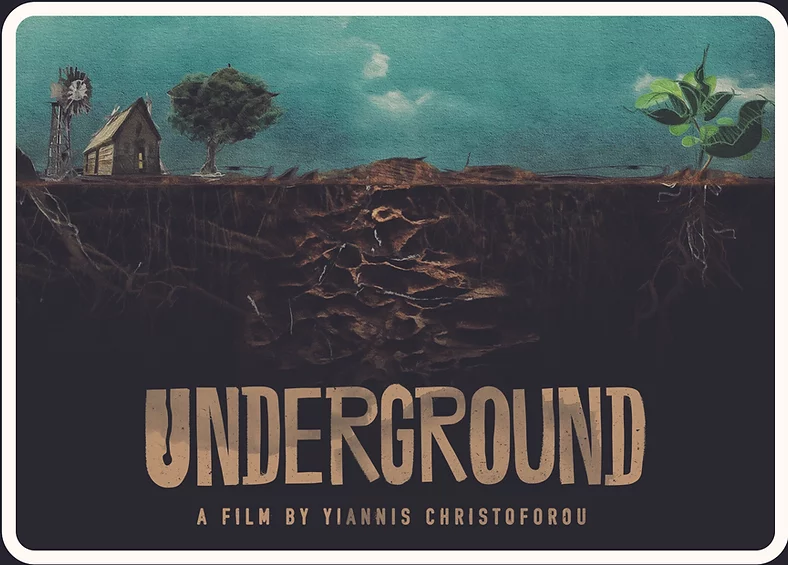
ZF: I believe that in the world of independent animation, there is great recognition of the work you all are doing with Momankin, Animarkt, and now StopMoLab. What do you feel when young people talk enthusiastically about Animarkt at other events?
PZ: It's a tricky question. I think first and foremost we feel joy. It's wonderful to know that we've created a place that is needed, that is recognized by the industry, but that most of all help stop-motion artists tell their stories. It's great to feel this positive energy and see that Animarkt Stop Motion Forum fulfills its role and brings stop-motion people together. We feel fulfilled in such moments, and it gives us the energy to pursue ideas that support our industry.
ZF: What is your advice to young people who are not sure about taking the step to produce their own projects, whether in stop-motion or another technique?
PZ: Just go for it! Whatever you want to do: direct, produce, animate, and you feel it is something you want to share with the world – do it. It won’t be easy, so look for people who may help you (filmmaking is a group work, always), have eyes wide open, and pay huge attention to what more experienced people are saying. Talk with people, present your project, listen to good advice, and do not give up. Filmmaking is like a jigsaw – you need to put together a lot of elements (creative, artistic, production, money, business) and sometimes it may take some time.
ZF: What is your vision for the stop-motion industry in Europe within 10 years?
PZ: It's hard for me to answer that question because I don't have a specific vision. I see some serious challenges facing the industry. One is the general change in the film distribution system and collaboration between broadcasters and producers. I think what could change the industry a lot is the need to find greener solutions in terms of production. This may redefine the system and the ways of production, not in terms of any constraints, but rather the development of new possibilities caused by the need to find them. It will also influence the system of production organization and may encourage artists to join together, to share production spaces and materials. Maybe in 10 years’ time a collection of dispersed small studios/units that share a common space and execute projects from common materials and resources (which saves money, but also our planet).
StopMoLab programme is co-funded by the European Union, Creative Media Europe programme.




